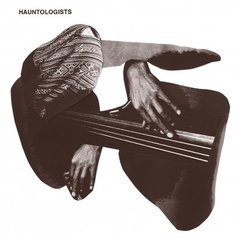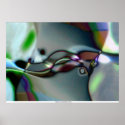
Self Titled.
Originally printed in Now Then Magazine Issue 88
This album is like a pattern on the wall. Once played and allowed to merge into our headspace, we find it disappears. The drums, rhythms, hollow tapping sounds - they all become a part of us. Only when something happens - a new layer, a little fill or perhaps even the ending of the track - do we consciously recall the fact we have this album on. It moves like a serpentine ray of energy, and as it enters our hearing, it forms into the particle and settles into our natural biorhythm.
The meditative element of this intimate record means that if we want to be thrilled, if we want the music to move us in any way, we have to allow our mind to be released from the act of listening. Be with the music in your own space and it does its job. By lining thought processes with its delicate but sensual pulses, putting a tingle in every moment with its electronic blipping and all-encompassing reverberations, Hauntologists demonstrates its spectre-like quality.
Worldwide rhythms come at us from every angle as we are dressed with funky bass and tribal patterns, ethnic-sounding pads played in quirky keys, and that driving repetitive sonic staple that holds the mood together. It builds and lifts in funny little ways, then collapses, only to begin the process again, albeit slightly differently. I can’t help but think of my numerous tasks in daily life. This is the flow of things.
I can’t place tracks. I don’t think I want to. In order to find a title name or a bar of preference, I’d need to drop what it is I like about this record. I’d have to pay deep attention. I think in doing so I’d find myself drowning in it. The appeal is in the stepping back.
Having said that, I have been able to pick out major swings from this way to that in the album. It’s a lengthy piece at well over an hour. It begins with the basics, takes a turn to the left with some more intricate and methodical electronica, then it throws us into the tribal outback of wanting to forget the technical, mind-bending outer and lands us once again in the ultimately deeper and exponentially more sensual inner landscape of musical appreciation.
Rowan Blair Colver


 RSS Feed
RSS Feed
